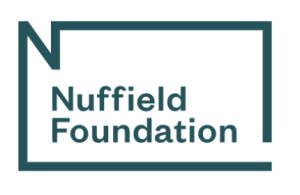Welcome
This research project, led by researchers at the University of Brighton, examined the different curriculum resources that primary schools and teachers in England use to structure and teach primary mathematics.
Curriculum resources include the printed, online and hybrid (mixed online and printed) resources primary teachers use to structure and resource their mathematics teaching, including schemes such as White Rose or Abacus, as well as resources such as nrich, Times Table Rock Stars or Twinkl which might be used to structure some aspects of the curriculum. With such a huge range for schools and teachers to choose from we wanted to understand how schools and teachers choose what to use and, once a decision is made, how these different resources are used. We also wanted to understand the factors, such as funding availability, school size/composition, etc., which might have an impact on decision-making.
There were three data collection phases:
Phase 1: A Main Survey: this was an online population-wide survey of current school-level practices, capturing trends and influencing factors in the uptake and use of mathematics curriculum resources. The survey involved multiple-choice, ratings and free-text questions. It was open to all 17,038 schools educating pupils in the primary phases between November 2021 and January 2022. We received 664 valid responses, with this sample being demographically representative of, and allowing us to make valid inferences about, the population.
Phase 2: A Subsidiary Survey: this was a short, closed-question, online survey of primary class teachers, allowing us to understand how school-level practices reported in the Main Survey played out at a classroom level. Many of these questions had the same or similar wording to the Main Survey to allow for analysis of congruence. 10 survey questions were asked to class teachers about their mathematics curriculum resource use in March 2022. On average, 1972 teachers in mainstream state-funded primary schools responded to each question.
Phase 3: Semi-structured interviews: Following the surveys, we conducted 12 interviews with Mathematics Subject Leaders. The interview questions were developed to elicit the reasons underpinning schools’ decision making in relation to the findings from the Main and Subsidiary Surveys. These interviews were conducted between October 2022 and November 2022.
Our research sought to positively influence policy decisions, informing future funding models and training provision related to textbooks and other curriculum resources. The project findings – and recommendations – provide a clear evidence base to support school leaders in making crucial purchasing, training, and school-policy decisions. This will inform the choice, use, and support for, textbooks and other curriculum resources.
You can read our full report here: The Prevalence and Use of Textbooks and Curriculum Resources in Primary Mathematics — The University of Brighton
The project was reviewed and given a favourable opinion by the Social Sciences Cross-School Research Ethics Committee at the University of Brighton (ref. 2021-8620-Marks).
The Nuffield Foundation is an independent charitable trust with a mission to advance social well-being. It funds research that informs social policy, primarily in Education, Welfare, and Justice. It also funds student programmes that provide opportunities for young people to develop skills in quantitative and scientific methods. The Nuffield Foundation is the founder and co-funder of the Nuffield Council on Bioethics and the Ada Lovelace Institute. The Foundation has funded this project, but the views expressed are those of the authors and not necessarily the Foundation. Visit
www.nuffieldfoundation.org


